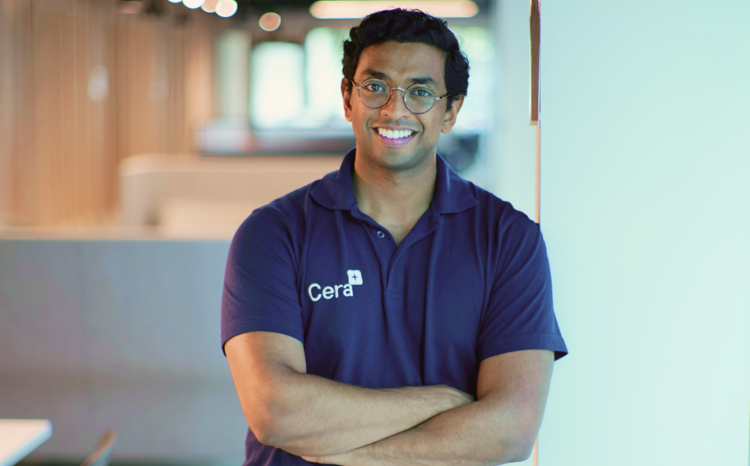Health tech can help reframe ageing as an opportunity not a problem
- 24 July 2024

Edinburgh’s new Global Research Institute in Health and Care Technologies is working on solutions that will enable many more people to age well, writes Professor Alan Gow
Imagine being able to live a healthy, active life for 25 or more years after retiring.
As one of the academic leads on healthy ageing at Heriot-Watt University’s new Global Research Institute in Health and Care Technologies, my role includes empowering older people to direct our research towards the things that are most important to them.
We have a team of more than 60 academics within the research institute focused on ageing, with projects that span the university’s departments from engineering and the physical sciences to robotics and AI, textiles and design, and the social and behavioural sciences. The research is also global, situated across our campuses in the UK, Dubai, and Malaysia.
According to the latest national census, there are now more than one million people aged 65 and over in Scotland; the 65+ age group has increased by 22.5% since 2011.
Do all these individuals experience the same opportunities to age well? Absolutely not, but with advances in technology we can develop impactful solutions that are targeted towards tackling inequalities.
World-leading robotics and AI
On our Edinburgh campus we have the National Robotarium, a world-leading centre for research and development in robotics and AI, where we are exploring how innovative systems and tools can support people to live more independently at home or in residential settings, enabling them to determine the kinds of tasks they might need help with.
For example, colleagues are trialling telepresence robots in assisted living environments that can quickly triage an emergency situation and open a video link to a remote carer who can arrange relevant support and emergency services.
Other active research projects include FEATHER, a unique data platform which helps individuals, their carers and clinicians to recognise the signs of potential urinary tract infections far earlier, supporting targeted medical tests and treatment where needed.
Across the university, colleagues are developing everything from innovative nano biosensors for earlier diagnosis of conditions like dementia or age-related macular degeneration, to technology that assists with stroke rehabilitation.
Making better use of data
Nothing we’re doing is about replacing human care and support. It’s about freeing time, whether from informal or formal carers, to focus on the compassionate, person-centred support that cannot be replicated. If smart sensors can log if a person is eating properly, taking their medication on time, or identify changes in sleeping patterns, a carer can spend more time doing the things they’ve been trained for and are expert in, supported by clear and accurate data.
Data is one thing we need to make better use of. For example, dementia can develop for decades before it is diagnosed. If we can find good markers of changes earlier in life, we can take steps to slow the decline.
One of the missions of the Global Research Institute in Health and Care Technologies is to work closely with industry, clinicians, the third sector and people themselves to develop user-led solutions.
Staff from Age Scotland visited the university recently and were excited by the possibilities of close collaboration and technology.
Katherine Crawford, Age Scotland’s chief executive, pointed out that the significant challenges older people today face in health and care will be compounded for future generations unless “smart and deliverable” solutions are developed.
“It is particularly important that real people are at the heart of this work, ensuring that technology is understood, embraced and ultimately meets their needs,” she said.
Technology won’t always provide a simple solution. But it can be part of it if designed to support ageing in the ways that people value. Age is something we must value – and it must be an opportunity for the many, not the few.
Professor Alan Gow is co-academic lead for healthy ageing at Heriot-Watt University’s Global Research Institute in Health and Care Technologies




